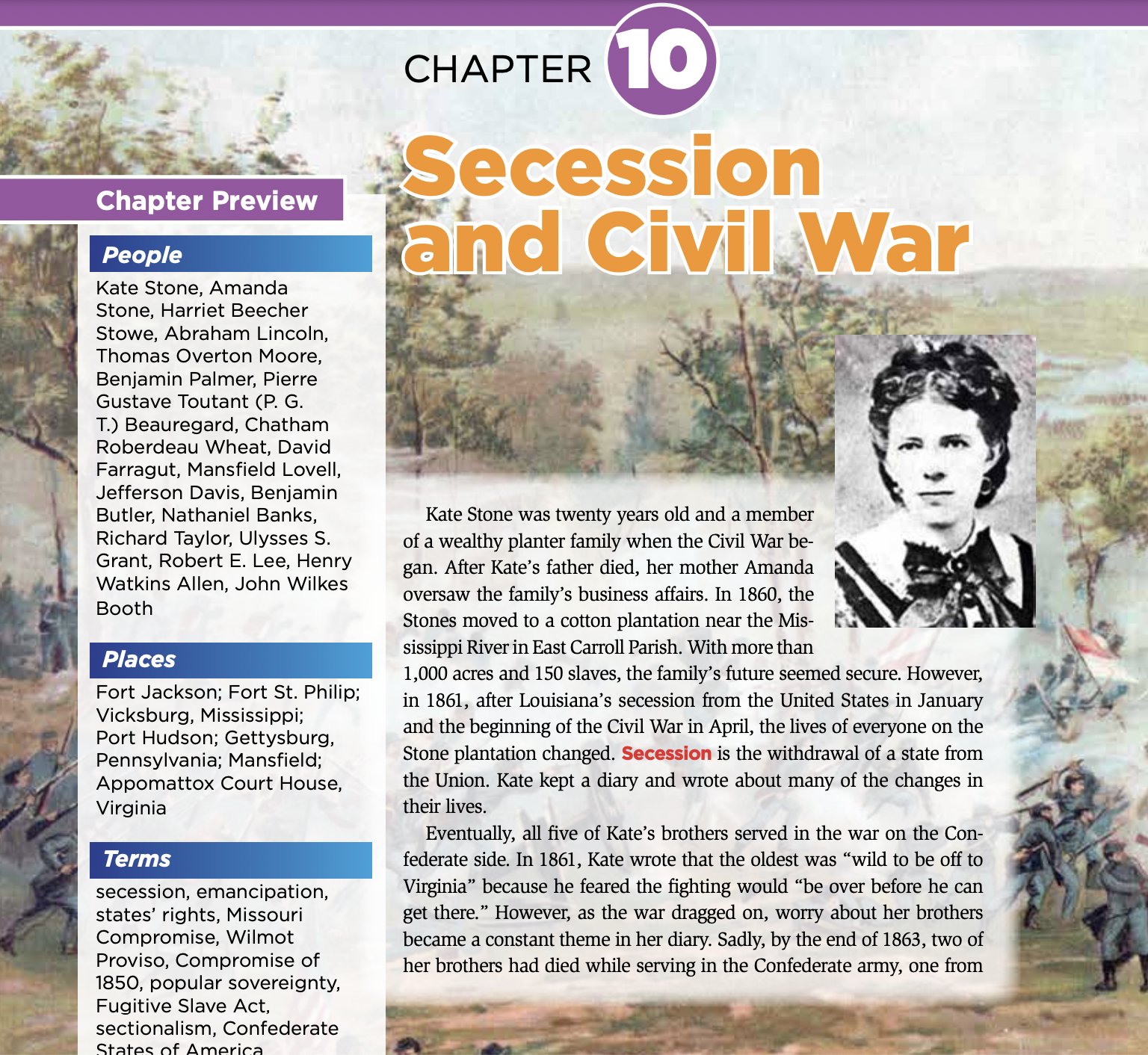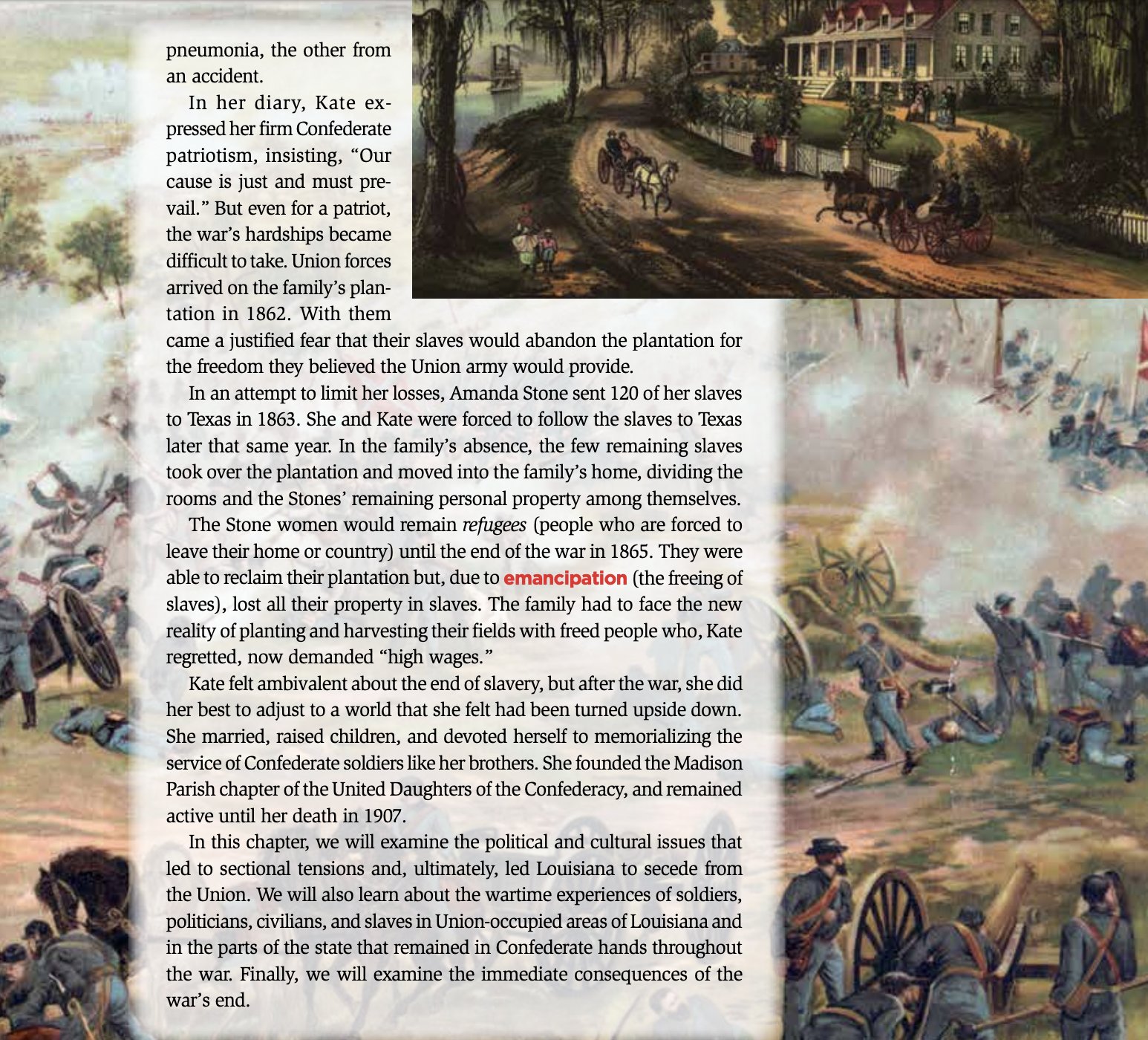This is in a history textbook for middle-schoolers used in Louisiana. I'm surprised they don't call it "the war of Northern aggression".






This is in a history textbook for middle-schoolers used in Louisiana. I'm surprised they don't call it "the war of Northern aggression".


I think it's pretty clear in the pages I shared.Where in the textbook does it advocate in favor of slavery?
This is in a history textbook for middle-schoolers used in Louisiana. I'm surprised they don't call it "the war of Northern aggression".


Where in the textbook does it advocate in favor of slavery?
"With them came a justified fear that the slaves would abandon the plantation for the freedom they believed the Union army would provide."
"justified" is not being used in a moral sense, but rather how it was perceived.
Wouldn’t it be meant for shock value at how horrible reality was when there was slavery?I think it's pretty clear in the pages I shared.
I agreed with you that you solved the riddle when I first read it, but when I read it again it might not work if you hit the word THEM."With them came a justified fear that the slaves would abandon the plantation for the freedom they believed the Union army would provide."
"With them came a justified fear that the slaves would abandon the plantation for the freedom they believed the Union army would provide."
Back in 1996, I read something similar in the Alabama History textbook that lay on a middle-school teacher's desk in Montgomery.
Er...they described emancipation as the owners "losing their PROPERTY in slaves."It's history. How does simply stating what happened advocate for slavery?
Like most neo-confederates in our country, they will dance around the subject without making a decisive statement.Where in the textbook does it advocate in favor of slavery?
Again I could see it two ways, on the one hand that’s exactly what slaves were, property, and the lead up of the story was the totality of their property was 1000 acres & 150 slaves, then most of it was lost. On the other hand I could see what you’re seeing in the wording of it. I’m very pessimistic about social engineering and I swear that they do 90% of this stuff on purpose to get everyone at each other’s throats on a never ending basis, call me a conspiracy theorist if you want lolEr...they described emancipation as the owners "losing their PROPERTY in slaves."
That very premise is immoral.
There is a term used by Catholics: sins of "omission." That history book is a mortal sin of omission.
For shame, Louisiana.
We begin our chapter on the civil war by telling a sympathetic story about a wealthy plantation owner who owned 150 slaves. We are meant to sympathize with and identify with Kate and her family.
I find it hard to believe that anyone would, or would be expected to sympathize with Kate or her family. To me, it opens our mind to the reality of how such people used to think, in a world very different from our own.
One might think of that as the point of historical study. Bias can't be escaped but one can try to mitigate it in historical research.
